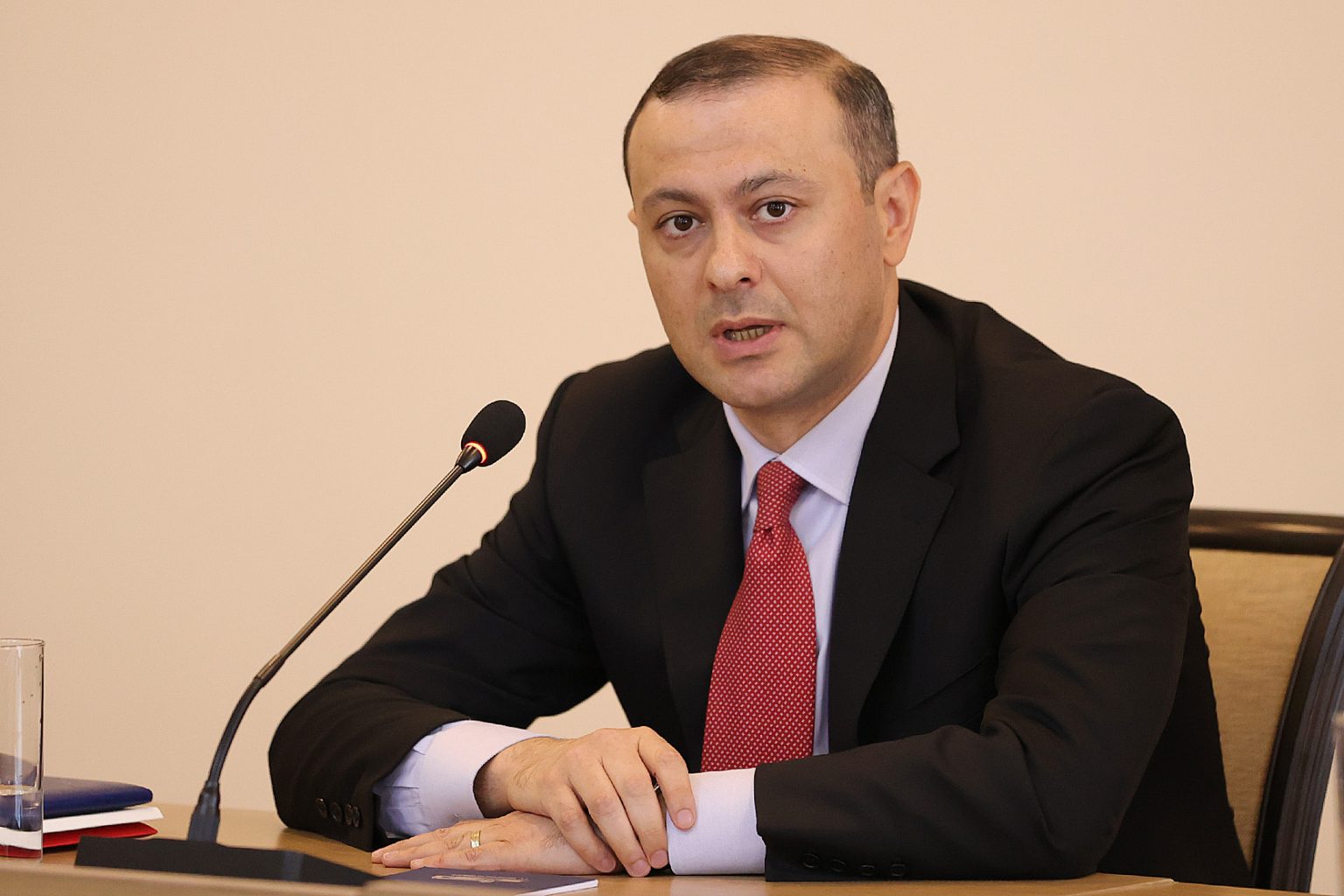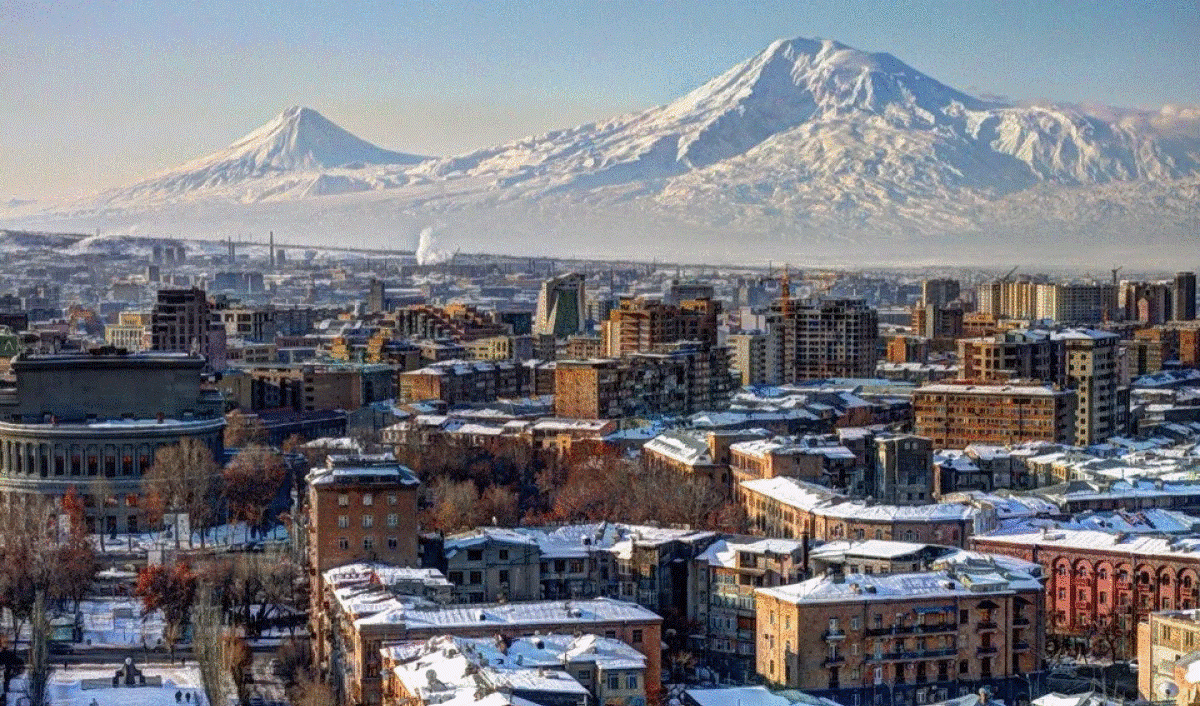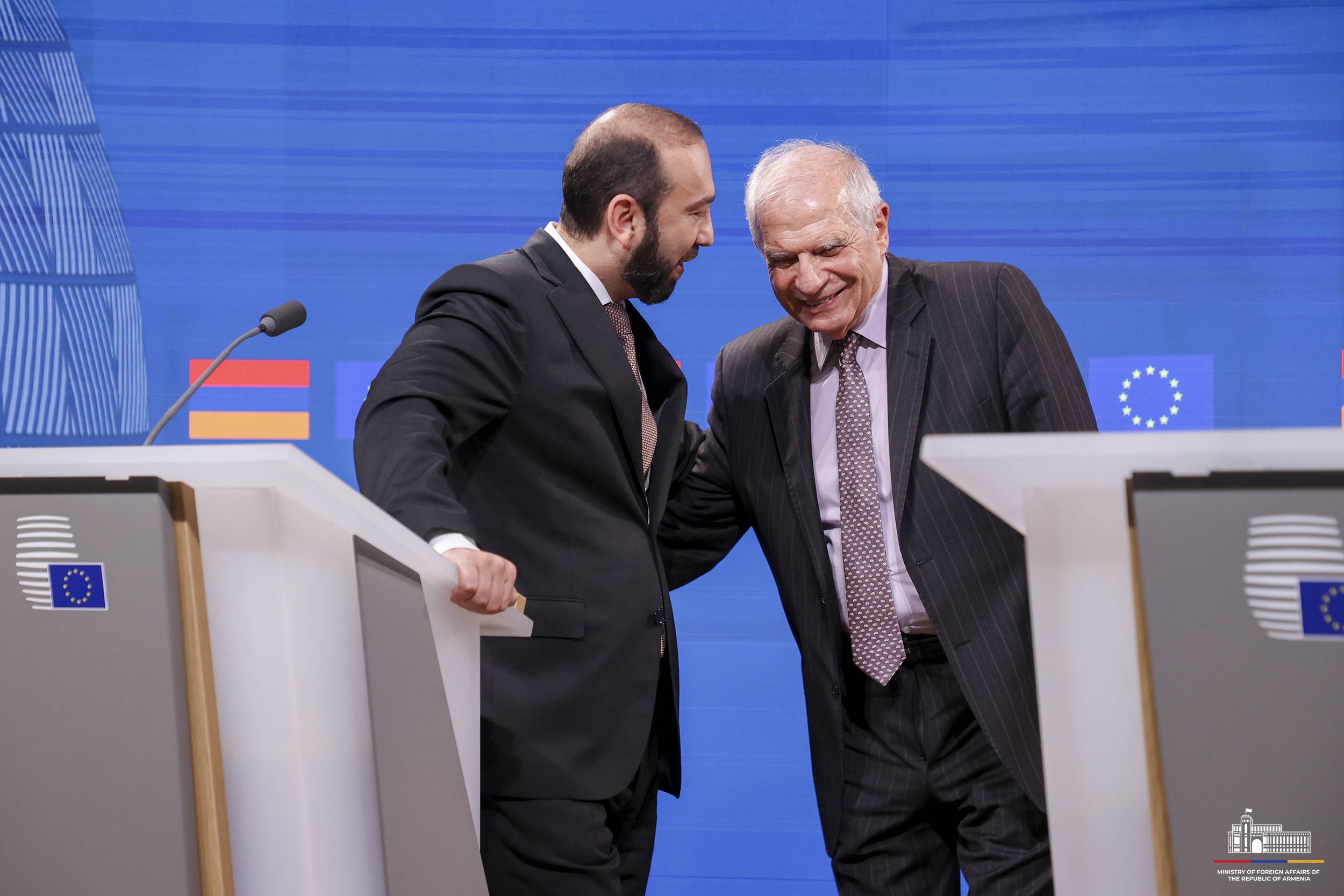"Armenia is only served 'paper pies' – resolutions." Opinion from Yerevan
European parliament resolution on Armenia
The European Parliament adopted a resolution on deepening ties between the European Union and Armenia. The resolution suggests considering the possibility of granting Armenia the status of a candidate for EU membership. It was voted for by 504 deputies, with only four against and 32 abstentions. It is important to note that this is a non-binding advisory document.
“If Armenia is interested in obtaining candidate status and continues on the path of sustainable reforms that strengthen its democracy, this could form the basis for a transformational stage in EU-Armenia relations,” the resolution states.
However, according to political analyst Akop Badalyan, the European Union does not show a particular desire “to truly stand by Armenia, to position itself against Azerbaijan”:
“Yerevan is being served ‘paper pies’ in the form of such resolutions, which flatter its ears and irritate Moscow. And it is unclear to what extent this benefits the country’s security. Meanwhile, they clearly and distinctly state that their priority is achieving peace between Armenia and Azerbaijan, and then moving forward with issues of convergence and integration at the regional level.”
- Why did Russian border guards not let EU observers get to the Armenian border?
- Why are EU and US unable to reconcile Yerevan and Baku? Opinion
- Armenia-EU alliance. How to reach this level of relations? Opinion
“We welcome the decisive desire to strengthen relations with the EU”
Members of the European Parliament “recognized and welcomed the decisive desire of Armenia” to strengthen relations with the European Union:
“We call on the executive bodies of the European Union — the European Commission and the European Council — to respond positively to this desire and to continue implementing the recently agreed EU-Armenia Partnership Programme, emphasizing the need to actively follow and achieve ambitious joint cooperation priorities.“
The document also calls for “supporting Armenia’s aspiration to expand cooperation with the EU not only in the area of economic partnership but also in political dialogue and security assurance.”
The resolution also mentions that “it is time to start a dialogue with Armenia on visa liberalization.”
The MEPs stress that all these proposals are based on Armenia’s choice in favor of democracy, the rule of law, fundamental freedoms and human rights, the fight against corruption, and respect for the international order.
“Russia could punish Armenia”
The European deputies took into account Armenia’s reassessment of its relations with the Russian military bloc CSTO and efforts to reduce dependence on Russia in the field of security. They also noted and supported steps aimed at the withdrawal of Russian border guards from Zvartnots airport.
The European Parliament called on the leadership of the EU to support Armenia through the European Peace Facility and to assist Armenian military forces.
Furthermore, the MEPs welcomed the actions taken by some EU member states to provide Armenia with defense support and urged other union countries to consider similar initiatives:
“Recognises that the Russian Federation’s influence on the Armenian economy remains high, encourages Armenia to exert vigilance on possible EU sanctions circumvention taking place in the country; is fully aware of the level and diversity of threats that the Russian Federation might try to use against Armenia to punish it for its independent political and strategic choices; believes that the EU needs to be ready to provide rapid assistance to Armenia to mitigate the negative consequences of any such unfriendly steps;”
Europeans demand the withdrawal of Azerbaijani forces from the territory of Armenia
The resolution of the European Parliament condemns the invasion of Azerbaijani forces into the internationally recognized territory of Armenia and the ongoing occupation of some of its parts:
“Reiterates its condemnation of the Azerbaijani military incursions into the internationally recognised territory of Armenia and ongoing occupation of parts of it; reiterates its demand for the withdrawal of Azerbaijan’s troops from the entirety of the sovereign territory of Armenia; rejects and expresses its grave concern regarding the irredentist and inflammatory statements made by the Azerbaijani President and other Azerbaijani officials threatening the territorial integrity and sovereignty of Armenia, including those in connection with demanding the exterritorial corridor linking Azerbaijan to its exclave of Nakhchivan; warns Azerbaijan against any potential military adventurism against Armenia proper; highlights that Azerbaijan’s connectivity issues with its exclave of Nakhchivan should be resolved with full respect for the sovereignty and territorial integrity of Armenia;”
Furthermore, the parliamentarians believe that the EU should be prepared to impose sanctions “against any individuals and legal entities threatening the sovereignty, independence, and territorial integrity of Armenia.”
The European Parliament also appealed to Azerbaijan:
“Calls on Azerbaijan to genuinely engage in a comprehensive and transparent dialogue with the Karabakh Armenians to ensure respect for their rights and guarantee their security, including their right to return to and live in their homes in dignity and safety under international presence, to access their land and property rights, to maintain their distinct identity and fully enjoy their civic, cultural, social and religious rights; calls on Azerbaijan to release and commit to broad amnesty for all the inhabitants of Nagorno Karabakh and Armenia who continue to be in Azerbaijani custody.”
Pashinyan: “This is an opportunity to discuss the vision of Armenia’s future”
The prime minister of Armenia welcomed the resolution adopted by the European Parliament. Nikol Pashinyan declared that it should become a subject of discussion for the entire society:
“This is another opportunity to discuss the vision of Armenia’s future. I hope that the political forces of the Republic of Armenia, non-governmental organizations, various layers of society, and citizens will express their attitude towards this message from the European Parliament.”
He emphasized that in this resolution, the European Parliament acknowledged Armenia’s achievements in the areas of democracy, the rule of law, and anti-corruption efforts.
He believes this is extremely important for the international perception of the country. The prime minister also confirmed the government’s intention to “continue strengthening and deepening relations with the European Union.”
Commentary
Political analyst Akop Badalyan sees “several motives for the adoption of the resolution by the European Parliament.” According to him, one of them is that the last months of the parliament’s work are running out. “Complex and unpredictable” elections are expected in June.
“It’s unclear what kind of Europe we will be dealing with in the coming years. Of course, the work to deepen Armenia-EU relations should be carried out, but there are not enough premises for long-term strategic conclusions yet,” Badalyan told JAMnews.
Another motive he identifies is the geopolitical competition between Russia and the West:
“The main calculation is to throw a stone towards Moscow. And in the context of peace negotiations with Azerbaijan, Armenia is promised “pies” in case of signing an agreement with Azerbaijan, thanks to which the geopolitical situation, the status quo, the balance — including in the Caucasus — will change.”
The “pie served to Armenia,” according to the expert, includes talks about visa liberalization with the European Union.
In the last two to three years, the European Parliament has adopted several resolutions “pleasing to the ear,” but none of them led to any changes, the expert recalls:
“They have not change the logic that Azerbaijan tries to dictate. They even provoked a reverse reaction. The Armenian side does not receive guarantees to restrain Baku on security issues. This explains why the authorities continue to make concessions, showing ever new records of meekness.”
Europe is currently undergoing transformations within the context of a changing world order, believes Akop Badalyan:
“And it’s still unclear what they will be like. Only clarity on these matters will allow us to understand how strategic relations with countries outside the EU, including Armenia, will develop. Recall the example of neighboring Georgia obtaining candidate status for EU membership, the events surrounding Ukraine and Moldova, and the statement by the French president that their EU membership could be delayed until 2030.”
In Armenia’s effort to deepen relations with Europe, the expert sees a desire to achieve “greater risk manageability” in the security sphere.
“The authorities are trying to form in the EU responsibility for what is happening in the security sphere of Armenia. But the EU is not really responding, not taking on this responsibility,” the expert said.






















